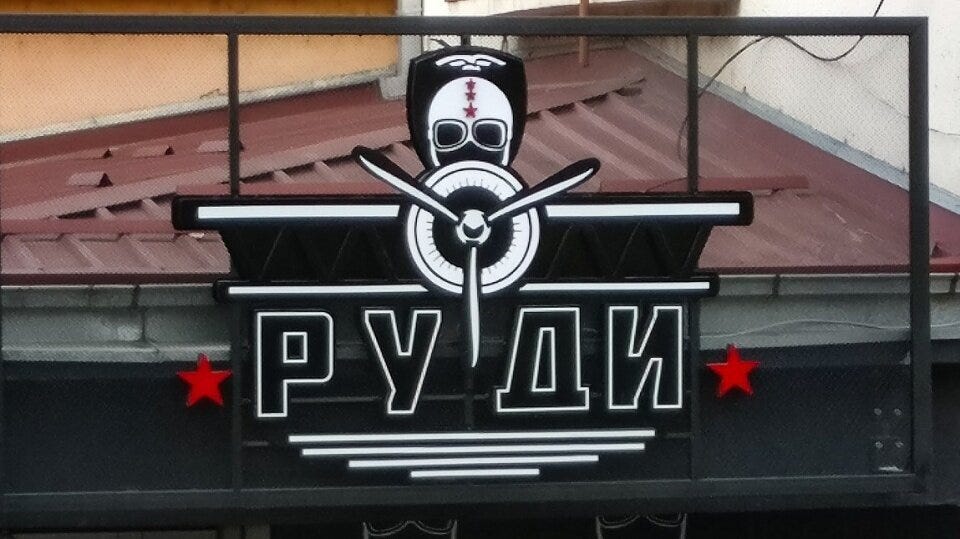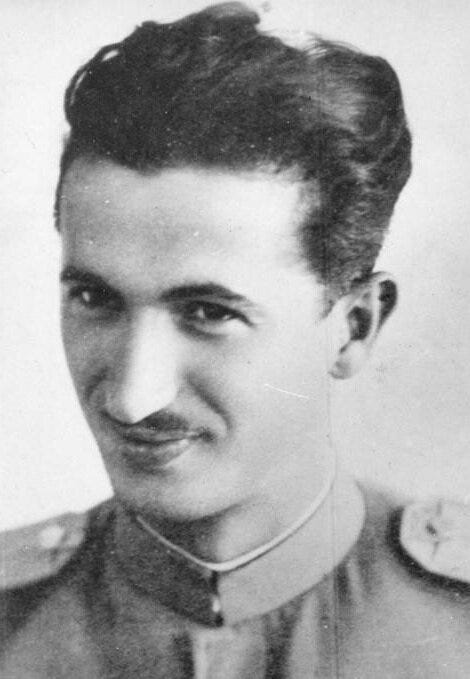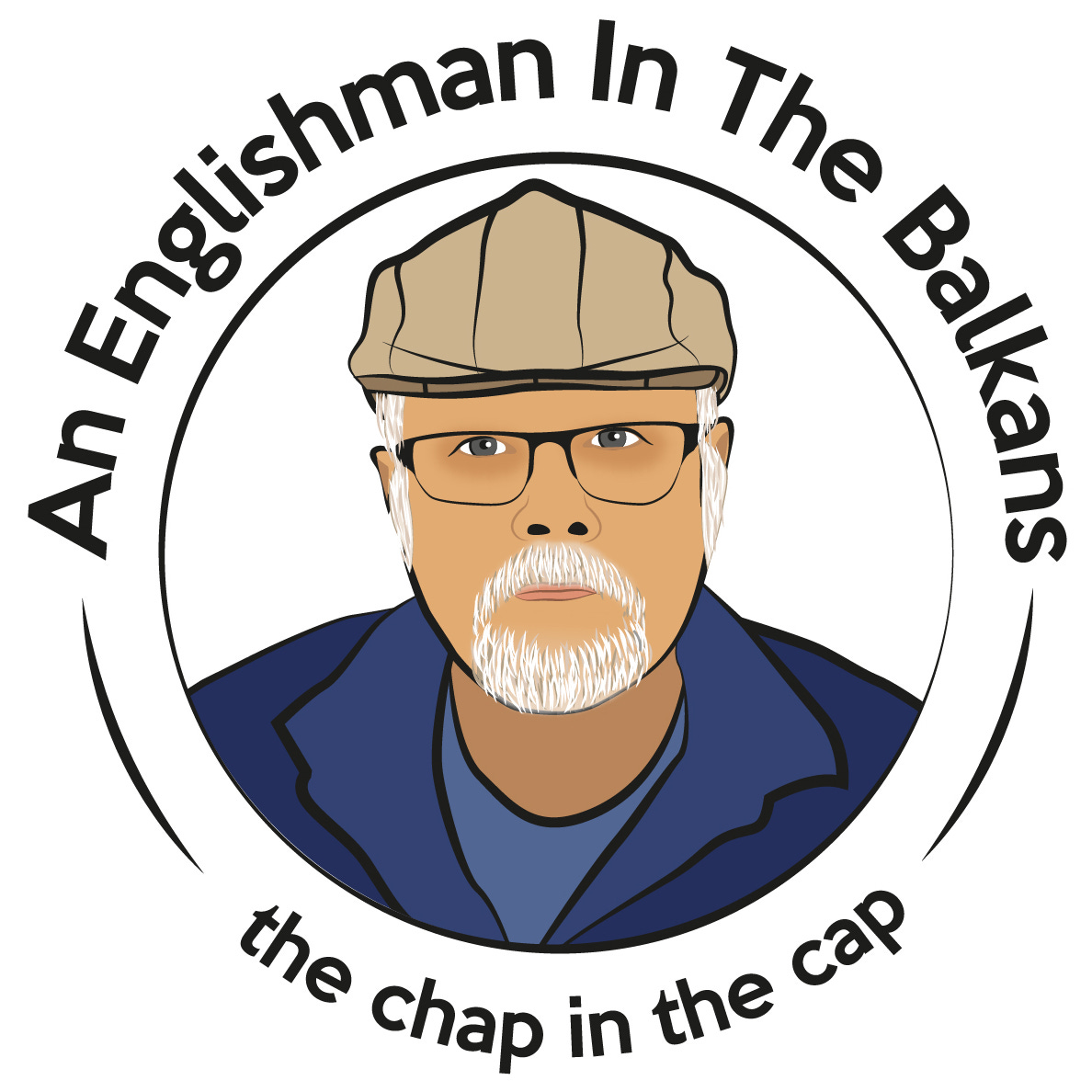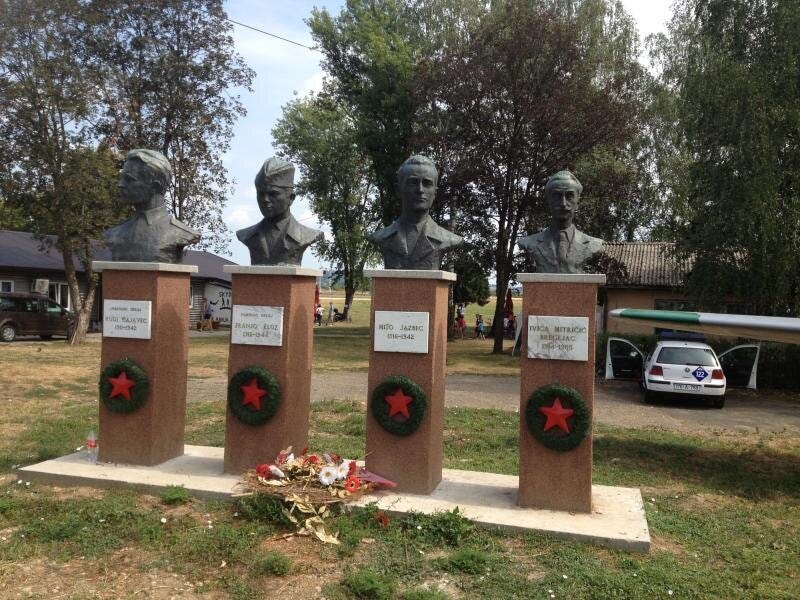This post was originally published in 2018. This is a 2022 update.
There used to be music venue that opened in the centre of Banja Luka in April 2018. It closed in mid 2021, partly due to the pandemic, but really, it was bought as part of a hotel redevelopment in the centre of Banja Luka.
The club was called "Rudi".
The location had been previously used as Television studios. But when I saw the logo, with the name (in Cyrillic), and the image of an aircraft and the red star, I couldn't help but think of the Jugoslav Partisan fighter pilot, Rudi Čajavec.
But surely not. But surely yes.
A People's Hero of the former Jugoslavija, had had a club named after him.
With the current considerable re-writing of history across the Western Balkans, I have been more than surprised to see today's generation referring back to the period of World War Two. Čajavec hasn't only had a club named after him but in the 1950's an industrial zone (now business area), in the heart of Banja Luka, which still exists today is called Čajavec.
So who was Rudi?
Rudi Čajavec (1 April 1911 – 2 July 1942) was a Yugoslav pilot (from Bosnia and Herzegovina), best known as the first airman of the Partisan air force. Before WW2 he studied law at the University of Belgrade where he participated in various left-wing groups and was arrested.
He also finished school for reserve officers and was a trained pilot. After the Axis invasion of Yugoslavia and establishment of the Independent State of Croatia (NDH), he came to Banja Luka where he joined the resistance movement. As a reserve lieutenant he was drafted into the Air Force of the NDH.
On 21 May 1942 he flew his Breguet 19 biplane and defected with his gunner Mišo Jazbec to the Partisans.
He landed near Partisan-controlled Prijedor. The date would later be marked as the Day of the Yugoslav Air Force. The Partisans immediately started to use their own plane.
On 2 July 1942 Čajavec made an air raid on Banja Luka, which included strafing the local airfield (at Zalužani), dropping bombs on important city buildings as well as leaflets on city streets.
The plane was damaged by anti-aircraft artillery, and Čajavec was forced to crash land on territory controlled by Serbian nationalist Chetniks. Finding himself surrounded, Čajavec committed suicide to avoid being captured.
After the war Čajavec received the title of People's Hero of Yugoslavia.
A consumer (Radios, TVs, amplifiers) and military electronics factory in Banja Luka was named after him.
I wonder what Rudi might think today?
BTW, Rudi's memorial bust as a People's Hero, is at the former military airfield at Zalužani, not too far from where I live.









